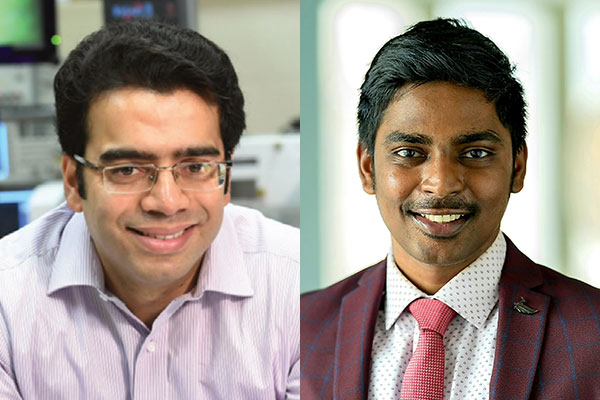Nagulu teams with Columbia Engineering on DARPA grant
Nagulu’s lab aims to develop new filter technologies for future wireless

Wireless systems such as radios in smartphones, Bluetooth devices and radars, rely heavily on filters to receive only the wanted signal while suppressing the interferers. Conventional filters are built using resonant cavities that occupy large size and are very difficult to tune, thereby limiting their application in future wireless systems with small form-factor and high reconfigurability. To address these challenges, DARPA developed the COmpact Front-end Filters at the ElEment-level (COFFEE) program to develop a new class of compact, integrable, high-frequency RF filters for next-generation wireless systems.
Research teams of Aravind Nagulu, assistant professor of electrical & systems engineering in the McKelvey School of Engineering at Washington University in St. Louis, as a co-principal investigator, and Harish Krishnaswamy, associate professor of electrical engineering at Columbia University as the principal investigator, aims to develop compact, integrated, high-frequency filter technologies known as N-path filters, on a four-year, $2.4 million grant from the Department of Defense’s Defense Advanced Research Projects Agency (DARPA).
The usage of just the transistor switches and capacitors makes these N-path filters extremely compact while offering very high-frequency tunability, Nagulu said.
“While these N-path filters have been become very popular in the past decade, through the DARPA COFFEE program, we seek to develop more tunable and more compact filters with higher selectivity and higher operating frequencies that will work with current and future technology,” Nagulu said.
The COFFEE program is part of DARPA’s Electronics Resurgence Initiative, a more than $1.5 billion investment in advancing the U.S. semiconductor industry that addresses its focus on revolutionizing communications for the 5G era and beyond.




